
Limbe Beach: The Coastal Gem of Cameroon
Nestled along the western coast of Cameroon, Limbe Beach is a pristine paradise that offers a perfect blend of natural beauty and cultural richness. With its black volcanic sands and clear blue waters, Limbe Beach stands out as a unique destination for travelers seeking both relaxation and adventure. The serene environment is complemented by the lush greenery of the surrounding rainforests, making it an ideal spot for nature lovers. Limbe Beach is not just about sunbathing; it is also a hub for water sports and marine exploration. Visitors can indulge in activities like snorkeling, diving, and boat rides. The diverse marine life and coral reefs provide an underwater spectacle that is sure to mesmerize. For those interested in history and culture, the nearby Limbe Wildlife Centre and the Botanical Gardens offer insightful experiences into Cameroon's rich biodiversity and heritage. The town of Limbe, with its friendly locals and vibrant markets, adds another layer of charm to your visit. Enjoy fresh seafood at the local eateries while soaking in the breathtaking views of Mount Cameroon in the distance. Whether you're a solo traveler, a couple, or a family, Limbe Beach has something to offer everyone.
Local tips in Limbe Beach
- Visit early in the morning for the best chance to see local fishermen bring in their catch.
- Bring reef-safe sunscreen to protect both your skin and the delicate marine ecosystem.
- Check out the Limbe Wildlife Centre to see rescued animals and learn about conservation efforts.
- Wear comfortable walking shoes if you plan to explore the nearby Botanical Gardens.
- Try the grilled fish at local beachside restaurants for an authentic taste of Cameroonian cuisine.
Limbe Beach: The Coastal Gem of Cameroon
Nestled along the western coast of Cameroon, Limbe Beach is a pristine paradise that offers a perfect blend of natural beauty and cultural richness. With its black volcanic sands and clear blue waters, Limbe Beach stands out as a unique destination for travelers seeking both relaxation and adventure. The serene environment is complemented by the lush greenery of the surrounding rainforests, making it an ideal spot for nature lovers. Limbe Beach is not just about sunbathing; it is also a hub for water sports and marine exploration. Visitors can indulge in activities like snorkeling, diving, and boat rides. The diverse marine life and coral reefs provide an underwater spectacle that is sure to mesmerize. For those interested in history and culture, the nearby Limbe Wildlife Centre and the Botanical Gardens offer insightful experiences into Cameroon's rich biodiversity and heritage. The town of Limbe, with its friendly locals and vibrant markets, adds another layer of charm to your visit. Enjoy fresh seafood at the local eateries while soaking in the breathtaking views of Mount Cameroon in the distance. Whether you're a solo traveler, a couple, or a family, Limbe Beach has something to offer everyone.
When is the best time to go to Limbe Beach?
Iconic landmarks you can’t miss
Boucareau
Escape to Boucareau Beach in Limbe: Golden sands, clear waters, and authentic Cameroonian coastal charm await!
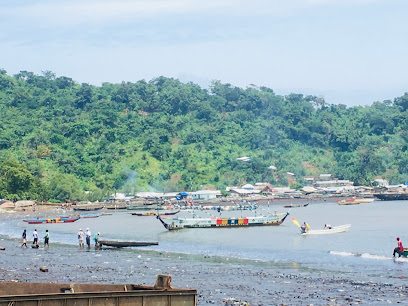
Big Bite
Enjoy a diverse menu of local and international cuisine at this popular Down Beach restaurant in Limbe, Cameroon.
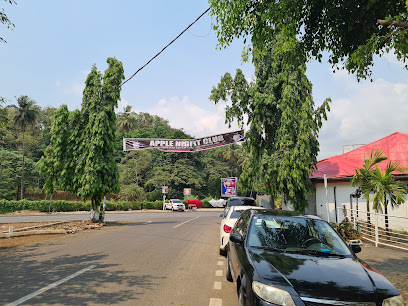
Limbe Wildlife Centre
Discover Cameroon's wildlife at the Limbe Wildlife Centre: rescue, rehabilitation, and conservation education in action.
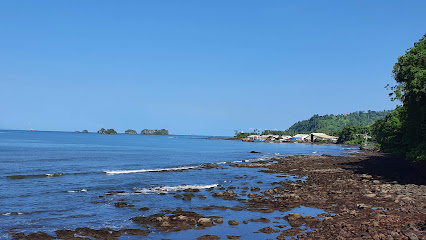
ALCEF PARK
Experience thrilling rides, lush gardens, and family-friendly fun at ALCEF Park, Limbe's premier amusement destination. Open daily 11 AM - 7 PM!
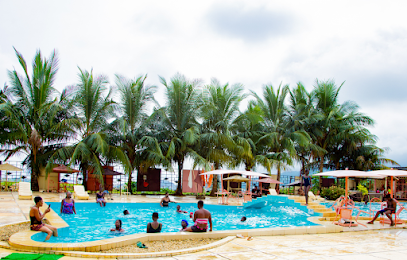
Mile 4 (Wututu Park)
Escape to Mile 4 (Wututu Park) in Moliwe: a serene oasis of greenery, perfect for relaxation, picnics, and connecting with nature.
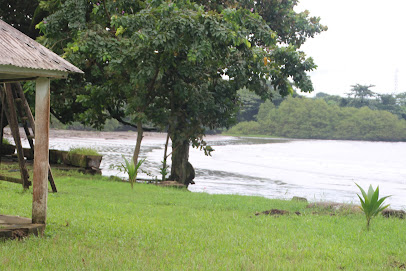
Limbe Botanic Garden
Discover Cameroon's botanical treasures at Limbe Botanic Garden: a historic garden with diverse flora, conservation initiatives, and tranquil landscapes.
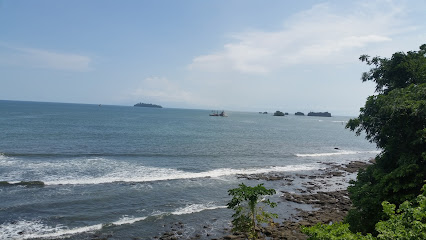
The Golden Jubilee Monument
Discover the Golden Jubilee Monument in Buea, Cameroon: A landmark celebrating unity, culture, and the nation's rich history.
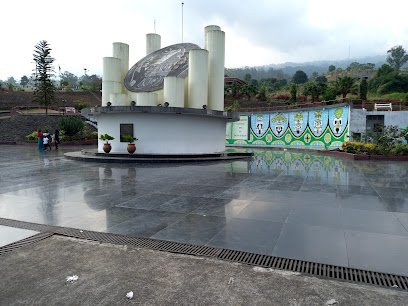
The Beach House, Botaland
Experience coastal luxury at The Beach House, Botaland in Limbe, Cameroon, offering relaxation, adventure, and cultural richness on the Atlantic coast.
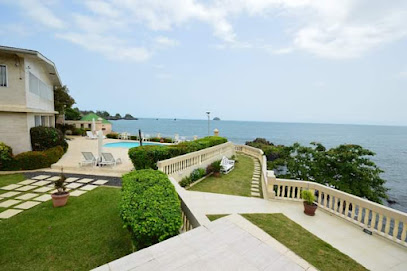
Gilgal Tower
Experience luxury and convenience at Limbe's tallest building, offering modern apartments, offices, and event spaces with stunning views.
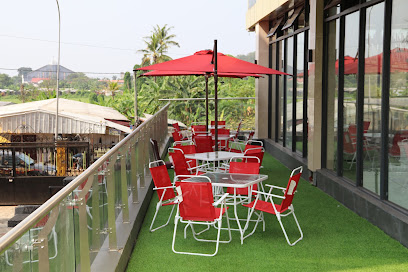
Black and White Limbe
Experience Limbe's vibrant nightlife at Black and White: a premier lounge, restaurant, and nightclub offering unforgettable dining and entertainment.
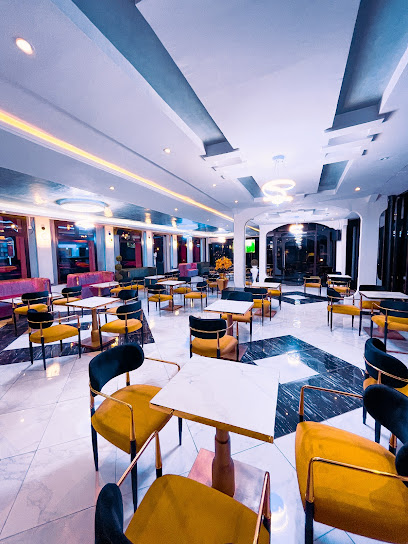
Dada Modern Estates Guest House Ngeme Limbe
Experience modern comfort in Limbe at Dada Modern Estates Guest House. Clean rooms, great location, and a tranquil atmosphere await!
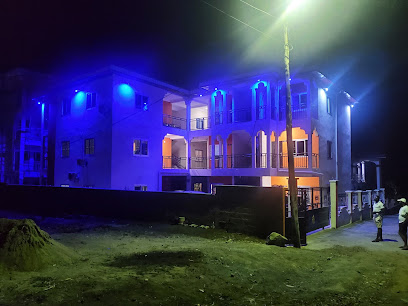
Apple Night Club
Experience Limbe's vibrant nightlife at Apple Night Club, where music, dance, and unforgettable nights await every visitor. Open nightly until the early hours!
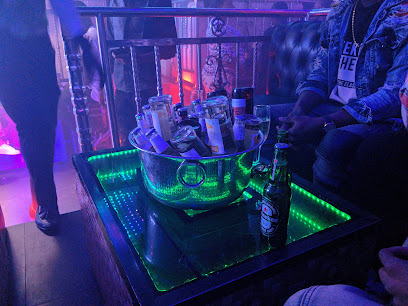
Coastal Beach Hotel
Escape to the Coastal Beach Hotel in Bobende for ocean views, relaxation, and a taste of Cameroon's coastal charm.

Karata Junction
Find serenity and reflection at Karata Junction, a tranquil memorial park in Limbe, Cameroon, offering a peaceful escape amidst nature's beauty.
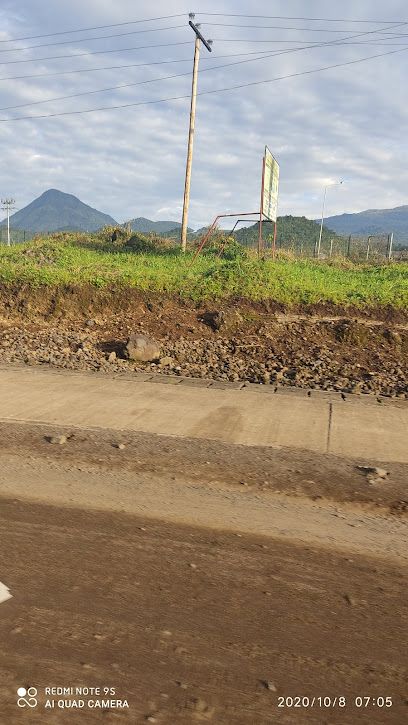
Beyond Barbers The Beauty Spa
Relax and rejuvenate at Beyond Barbers The Beauty Spa in Limbe. Experience personalized beauty care in a tranquil environment. #LimbeBeauty #CameroonSpa
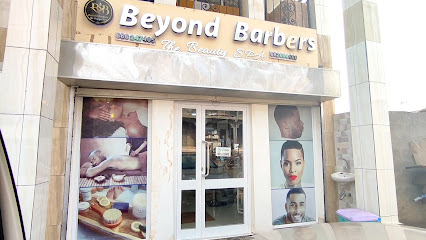
Unmissable attractions to see
Maritime Museum Of Douala
Discover the rich maritime heritage of Douala at the Maritime Museum, a unique cultural experience that highlights the region's nautical history.
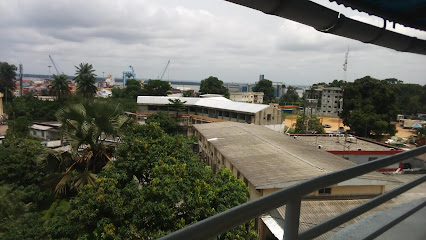
Mount Cameroon National Park
Explore the breathtaking landscapes and rich biodiversity of Mount Cameroon National Park, a premier destination for adventure and nature lovers in Cameroon.
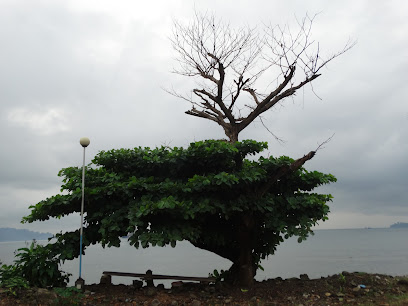
Point de Vue Base Navale
Experience the breathtaking views and vibrant culture at Point de Vue Base Navale, a prime tourist destination in Douala, Cameroon.
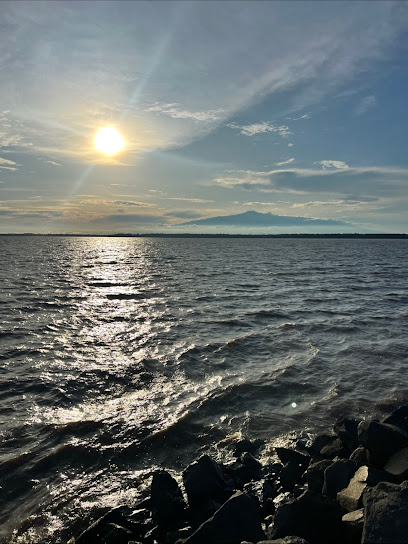
Les palétuviers
Experience the beauty of nature at Les Palétuviers, a serene tourist attraction in Bonabéri showcasing rich biodiversity and cultural heritage.
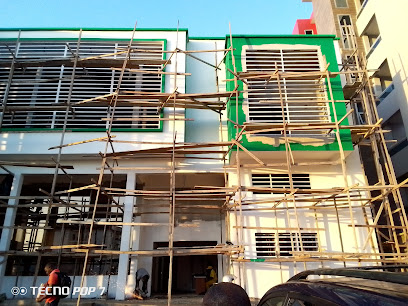
Bimbia Slave Trade Site
Explore the Bimbia Slave Trade Site, a historical museum reflecting on the profound legacy of the slave trade in Cameroon.
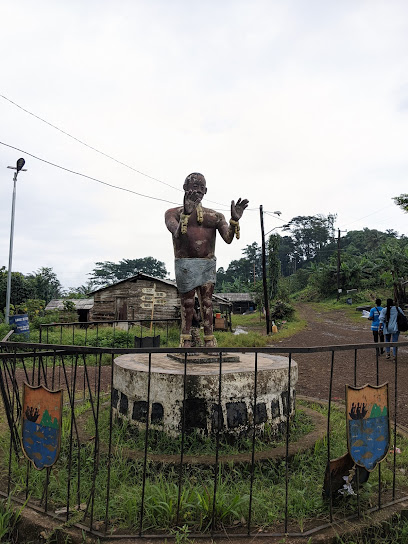
Hut 2 Mount Cameroon
Discover the natural beauty and thrilling adventure at Hut 2 Mount Cameroon, a key stop for trekkers on their journey to the summit.
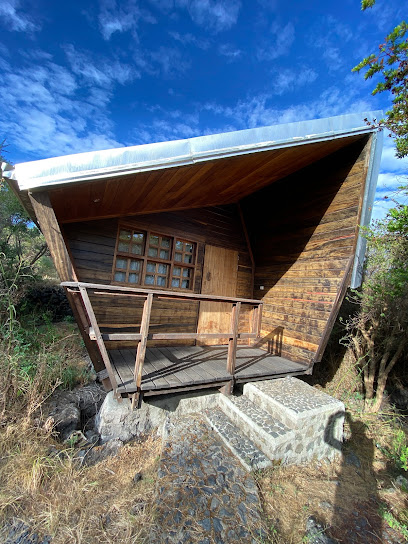
Our Lady of Grace Shrine,Sasse
Experience spiritual serenity at the Our Lady of Grace Shrine in Sasse, a peaceful oasis in Buea, Cameroon, surrounded by lush gardens and stunning architecture.
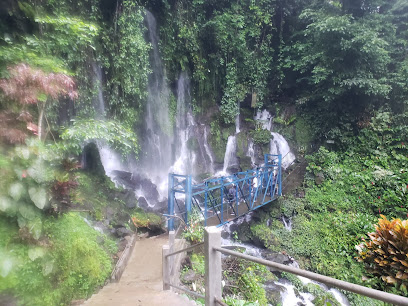
Dickantone Ranch
Explore the stunning landscapes and diverse wildlife at Dickantone Ranch, Bonabéri's premier hiking destination for nature enthusiasts.
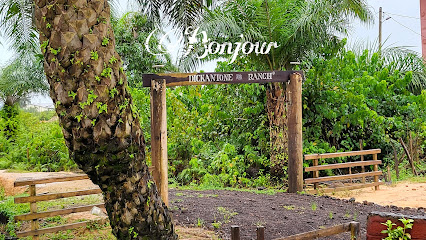
Hut 3 mount Cameroon
Explore the stunning natural beauty and challenging trails of Hut 3 on Mount Cameroon for an unforgettable hiking experience in West Africa.
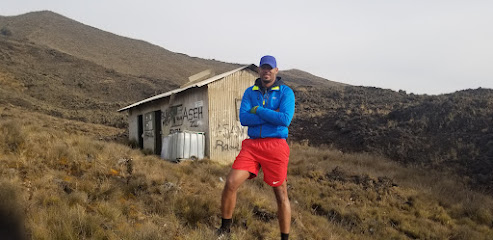
ILE DE MANOKA
Experience the natural beauty and vibrant culture of Ile de Manoka, a stunning island paradise near Douala, Cameroon.
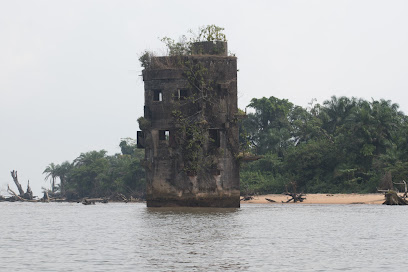
Aisha' Beach Resort
Discover serenity and adventure at Aisha's Beach Resort in Idenao, where tropical beauty meets unforgettable experiences for every traveler.

VITAFISH DOUALA
Discover the vibrant flavors of Cameroonian seafood at VITAFISH DOUALA, where ocean freshness meets stunning waterfront views.
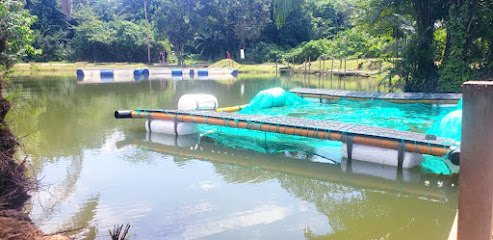
Great Soppo Chiefdom Quarter 15 Water Fall
Explore the breathtaking Great Soppo Chiefdom Waterfall in Buea, where adventure meets natural beauty in a tranquil hiking paradise.
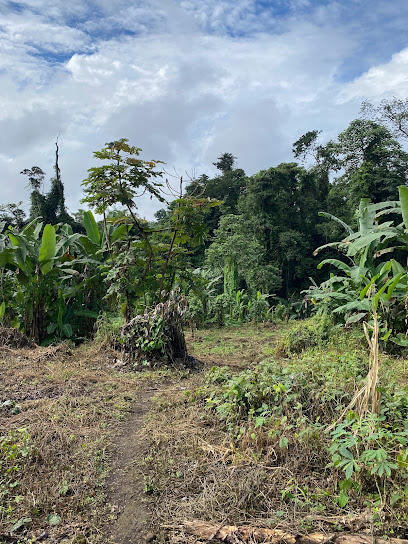
Enyenge
Discover Enyenge in Idenao, a captivating tourist attraction blending natural beauty and rich cultural heritage for unforgettable experiences.
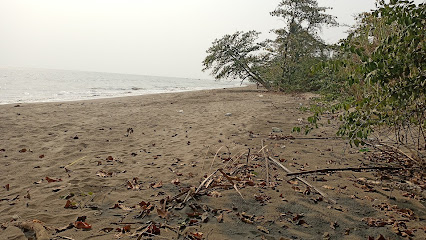
TAMFU'S PLAZA
Experience the vibrant culture and delicious cuisine at Tamfu's Plaza, a must-visit tourist attraction in Bonabéri, Cameroon.
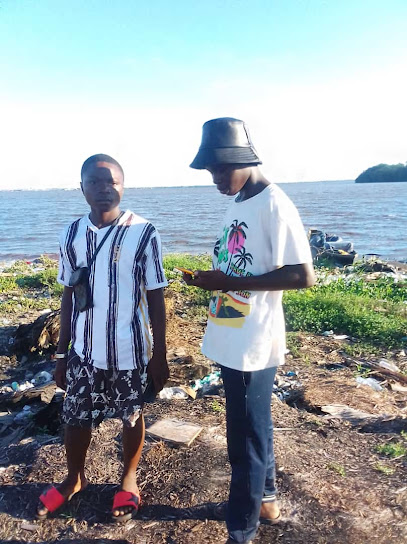
Essential places to dine
Big Bite
Discover culinary delights at Big Bite in Limbe – where local flavors meet ocean views for an unforgettable dining experience.
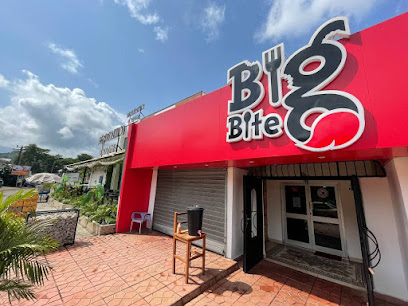
Bota S.S. Club
Experience authentic Cameroonian flavors at Bota S.S. Club in Limbe - where culinary delight meets cultural richness.
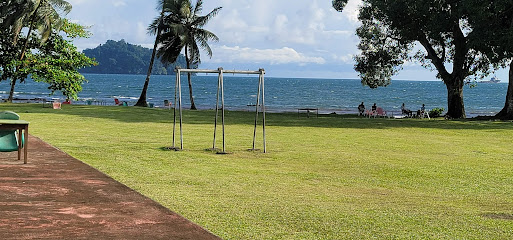
BIGGIE CHOPS
Experience authentic Cameroonian cuisine at Biggie Chops in Limbe - where every meal is a celebration of flavor.
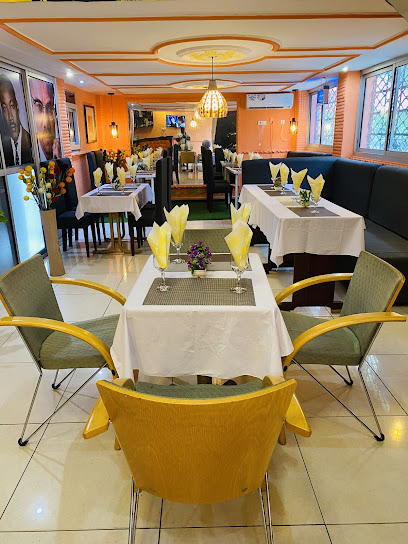
Rotisserie La Mbamoise
Experience authentic Cameroonian flavors at Rotisserie La Mbamoise, where rotisserie chicken meets local charm in Limbe.
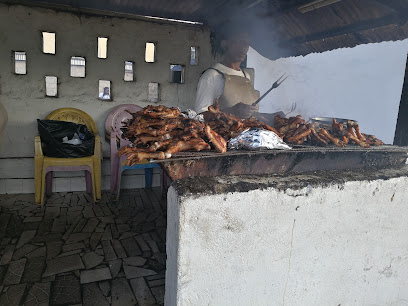
Black and White Limbe
Discover the dynamic nightlife at Black and White Limbe - where exquisite dining meets vibrant entertainment in Cameroon.
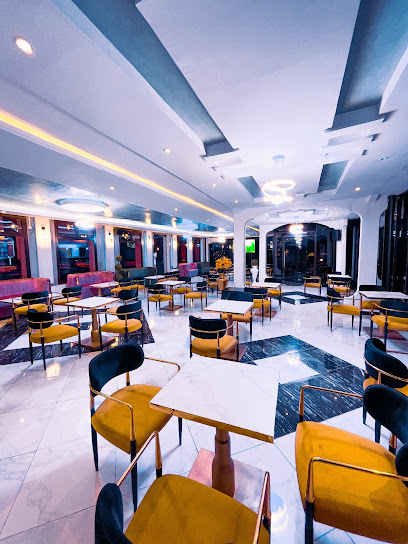
ARNE's Cafe
Discover culinary delights at ARNE's Cafe in Limbe, where local flavors meet international cuisine in a cozy setting.
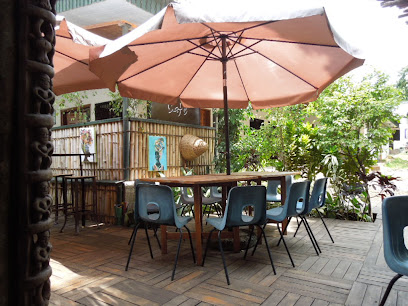
DADA Restaurant
Experience the vibrant culinary scene at DADA Restaurant in Limbe—where local flavors meet international flair for an unforgettable dining adventure.
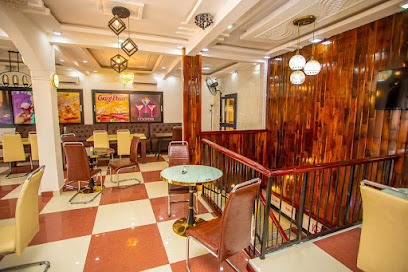
The Dorade restaurant
Discover authentic Cameroonian cuisine at The Dorade Restaurant in Limbe – where every meal is a celebration of flavor and hospitality.
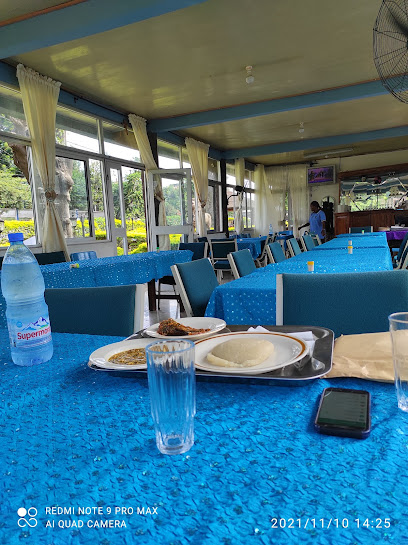
Kan's Flavors Restaurant
Experience authentic Cameroonian cuisine at Kan's Flavors Restaurant in Limbe – where every dish tells a story.
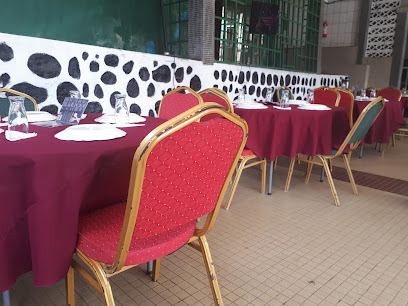
West gates complex
Savor authentic Cameroonian dishes amidst lively music at West Gates Complex in Limbe.
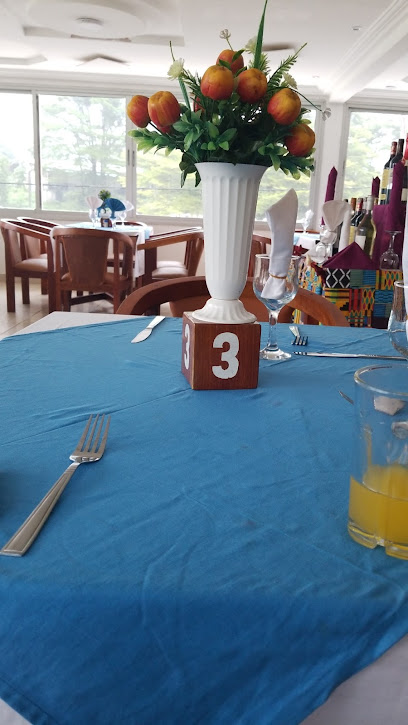
Kitchen Glory
Savor the essence of Cameroon at Kitchen Glory in Limbe – where delicious local dishes meet an inviting atmosphere.
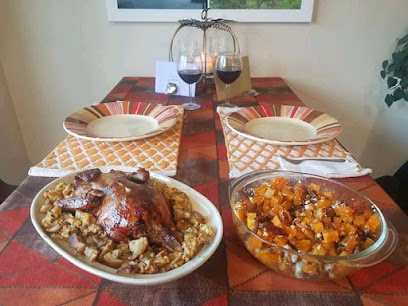
The LK Restaurant
Experience authentic Cameroonian flavors at The LK Restaurant in Limbe, where every dish tells a story of culture and tradition.
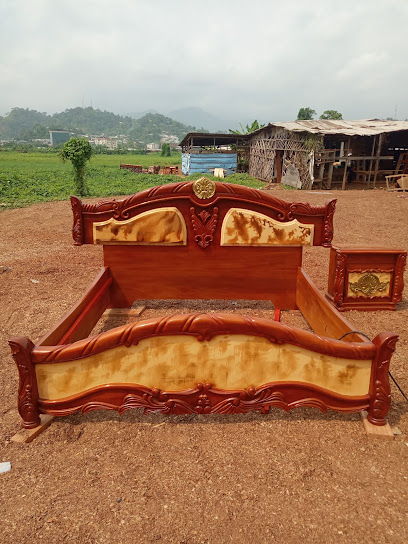
Randy's New World Restaurant
Experience authentic Cameroonian cuisine at Randy's New World Restaurant in Limbe – where every dish tells a story.
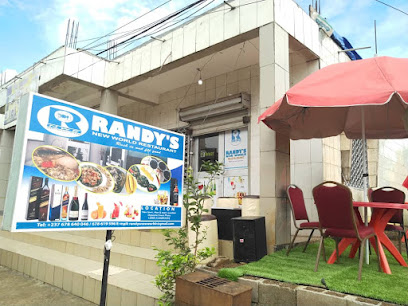
Ekowest LaClass Limbe
Experience authentic grilled delicacies at Ekowest LaClass in Limbe - where local flavors meet vibrant atmosphere.
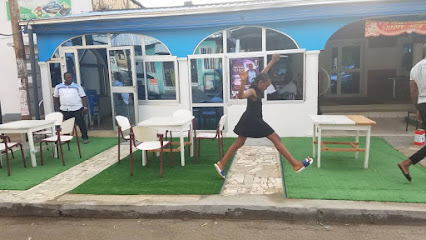
Limbe Mars Snack Bar
Experience delicious grilled dishes with breathtaking sea views at Mars Snack Bar in Limbe - a must-visit culinary destination.
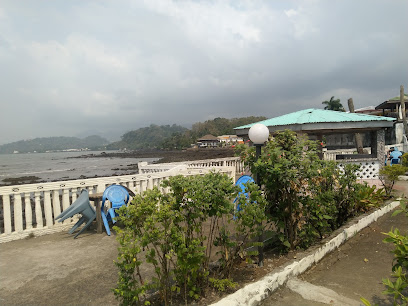
Markets, malls and hidden boutiques
Easyshop
Discover a wide range of local and international products at Easyshop, Limbe's premier supermarket for tourists and locals alike.
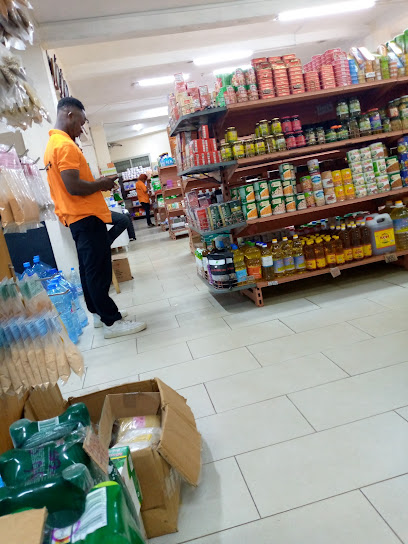
ROMIS
Explore ROMIS in Limbe for a vibrant shopping experience, featuring clothing, toys, and cultural festivals in a modern, welcoming atmosphere.
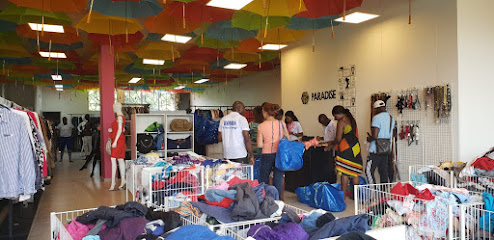
PAPER FASHION
Explore the vibrant styles at Paper Fashion, a premier clothing store in Limbe showcasing unique Cameroonian designs and local craftsmanship.
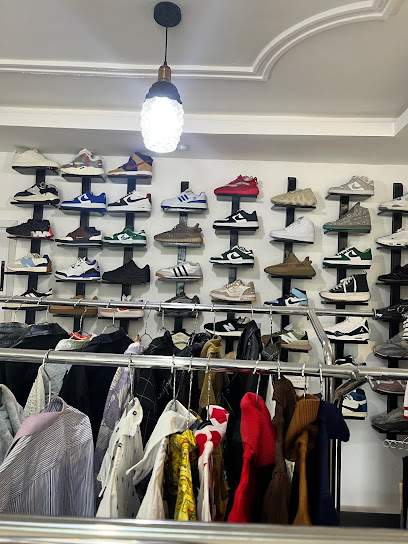
KINGS COLLECTIONS
Explore the best electronics and appliances at King's Collections in Limbe, where tech meets local charm in a vibrant shopping experience.
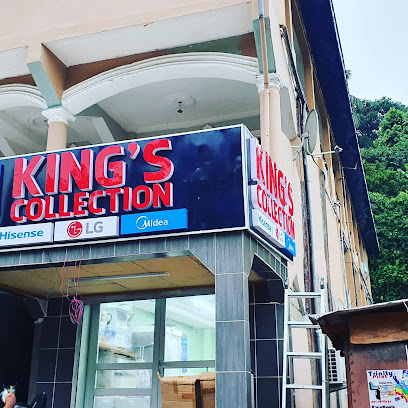
Main garage old market Limbe
Discover a vibrant hub of electronics and local culture at Limbe's Main Garage Old Market, where shopping meets community.
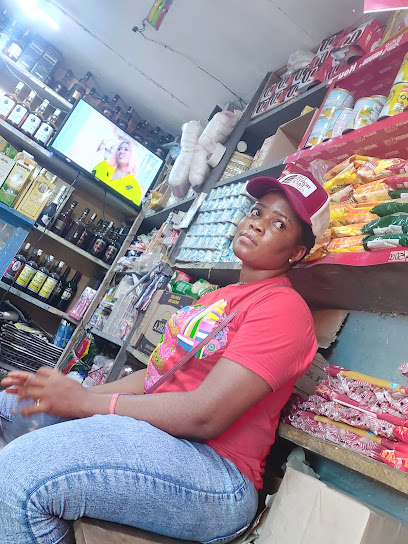
Calaboot Store
Explore local culture and unique crafts at Calaboot Store, Limbe's vibrant shopping destination for tourists and locals alike.

Lancement shopping Centre
Explore the vibrant Lancement Shopping Centre in Limbe for an authentic shopping experience filled with local treasures and unique finds.
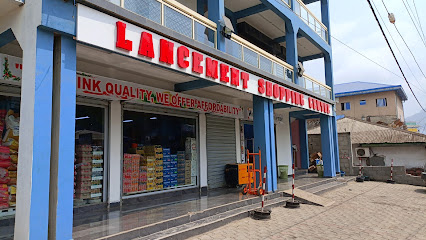
Serabel Fashion
Experience the essence of Cameroonian fashion at Serabel Fashion in Limbe, where vibrant styles meet quality craftsmanship.
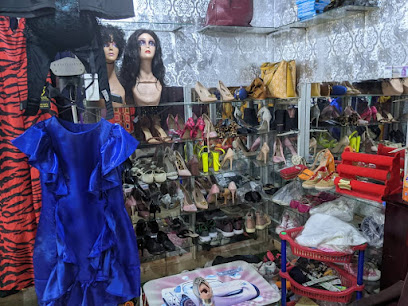
4G Shop/Snackbar
Explore the vibrant 4G Shop/Snackbar in Limbe for local snacks and essentials, perfect for tourists on the go.
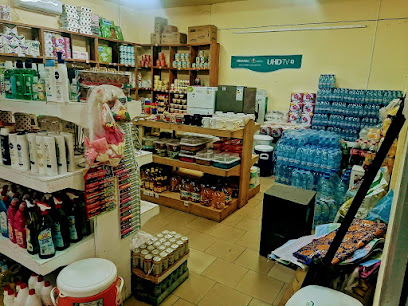
Kay-Boo-Ki
Discover Kay-Boo-Ki: Limbe's premier baby store for all your parenting essentials and adorable baby fashion.

Lette's
Explore Lette's in Limbe for unique fashion accessories that showcase local artistry and elevate your style.
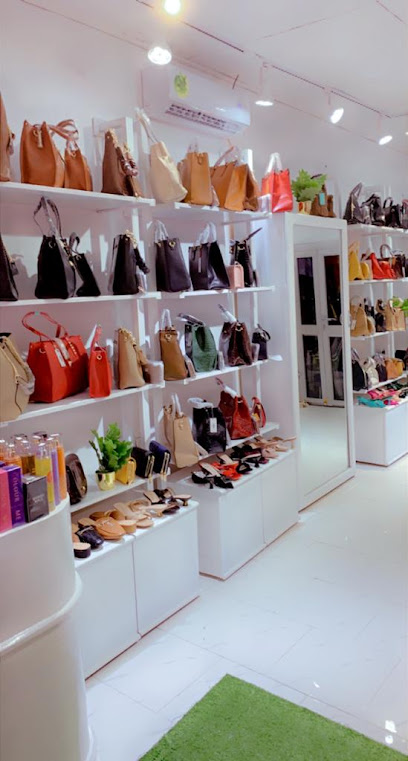
AFRI'A CHIC MAISONETTE
Discover unique fashion accessories at AFRI'A CHIC MAISONETTE in Limbe, where local culture meets contemporary style.
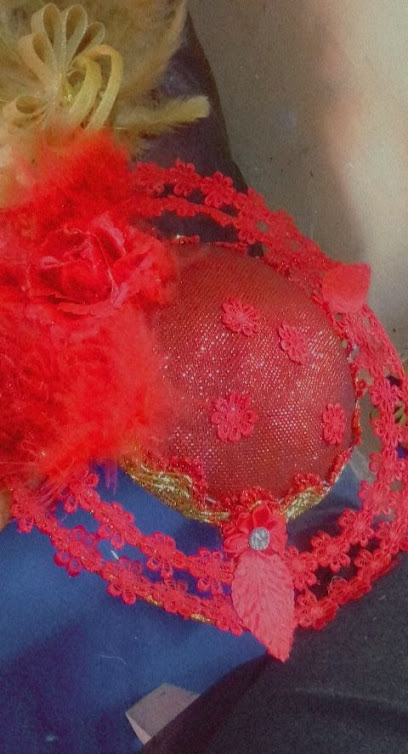
Ladies clothes and accessories
Explore the vibrant selection of women's clothing and accessories in Limbe's Ladies Clothes and Accessories store, where style meets affordability.

Te voilà
Explore the exquisite craftsmanship at Te Voilà, Limbe's premier jewelry store showcasing the rich artistry of Cameroon.

KAMGLOMUS SHOP
Discover convenience at Kamglomus Shop in Limbe, offering a variety of local products and everyday essentials for your travel needs.
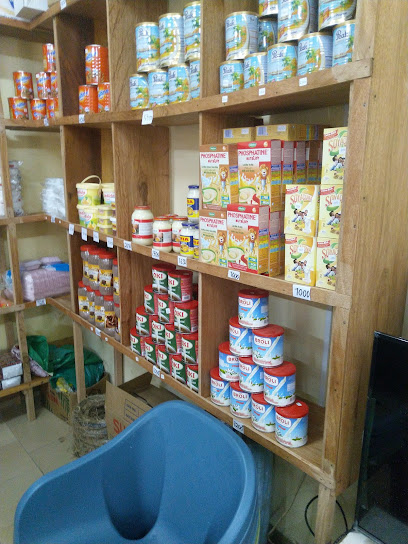
Essential bars & hidden hideouts
Black and White Limbe
Discover a lively blend of cuisine and nightlife at Black and White Limbe, where every evening is an unforgettable experience.
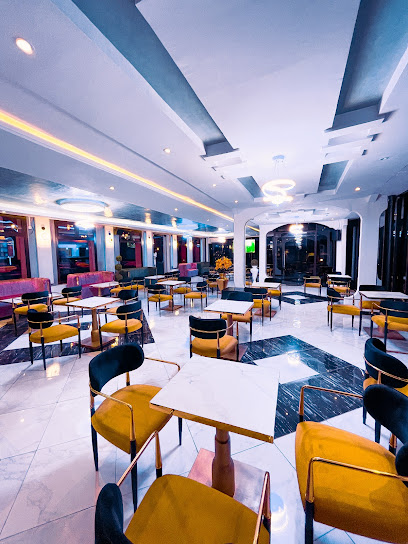
Area Code Bar
Discover the vibrant nightlife of Limbe at Area Code Bar, where great drinks and good times await in a lively atmosphere.
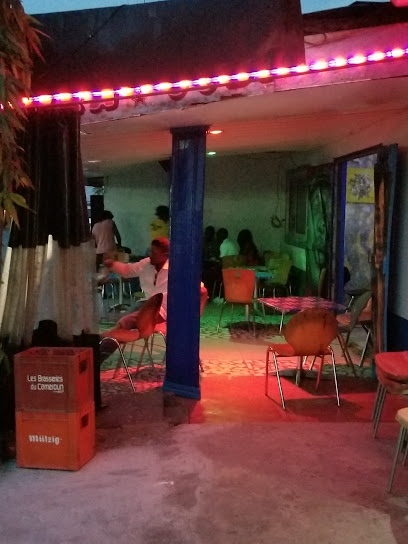
Salento Lounge Limbe
Experience the vibrant nightlife at Salento Lounge Limbe, a top bar and lounge destination for tourists in search of great drinks and lively ambiance.
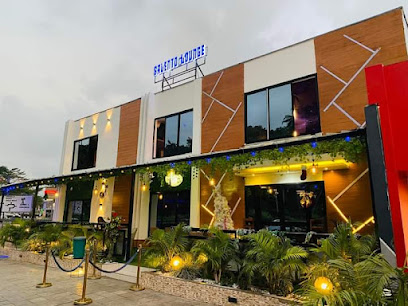
Apple Night Club
Dive into Limbe's vibrant nightlife at Apple Night Club, where great music and an electrifying atmosphere await every night.
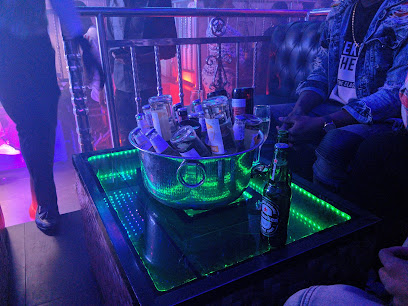
GRAND ANDRE
Experience a delightful selection of wines at GRAND ANDRE, Limbe's charming wine bar, perfect for relaxation and socializing.

Botanic Garden Restaurant, Limbe
Discover the serene beauty and local flavors at the Botanic Garden Restaurant in Limbe, a perfect oasis for relaxation and delicious dining.
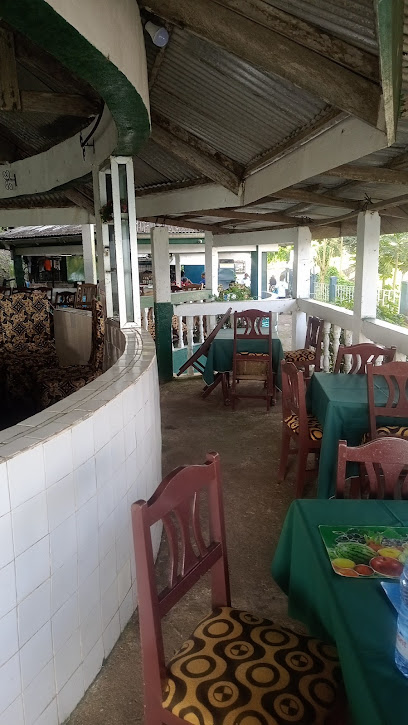
Limbe Mars Snack Bar
Experience the vibrant tastes of Limbe at Limbe Mars Snack Bar, where delicious grilled dishes and a friendly atmosphere await.
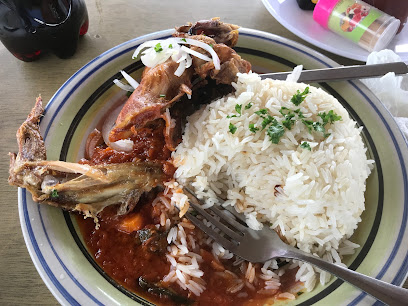
BitCoin Bar
Discover Limbe's unique BitCoin Bar, where cryptocurrency meets vibrant nightlife and local culture in a lively atmosphere.
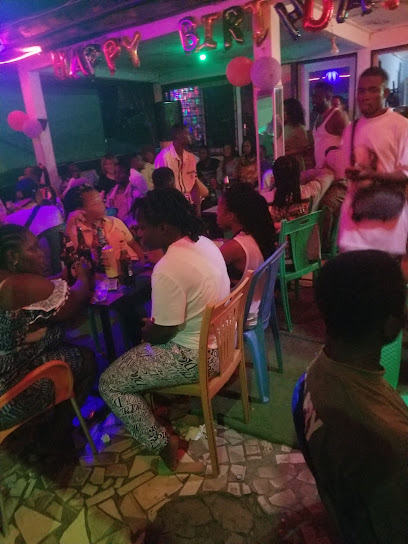
The Legends Lounge. Snack Bar Restaurant
Discover the vibrant atmosphere and delicious flavors at The Legends Lounge in Limbe, a must-visit for tourists seeking relaxation and local cuisine.
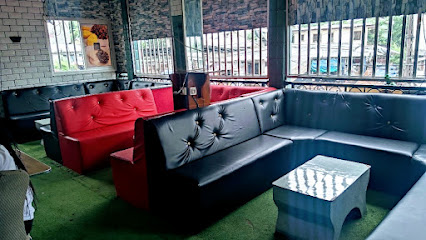
Bourbon Clique
Experience the vibrant nightlife of Limbe at Bourbon Clique, the ultimate bar for wine and whisky enthusiasts.
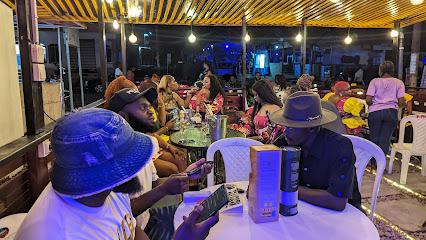
Neptune
Experience vibrant beachside vibes at Neptune in Limbe, where refreshing drinks and stunning sunset views await you.
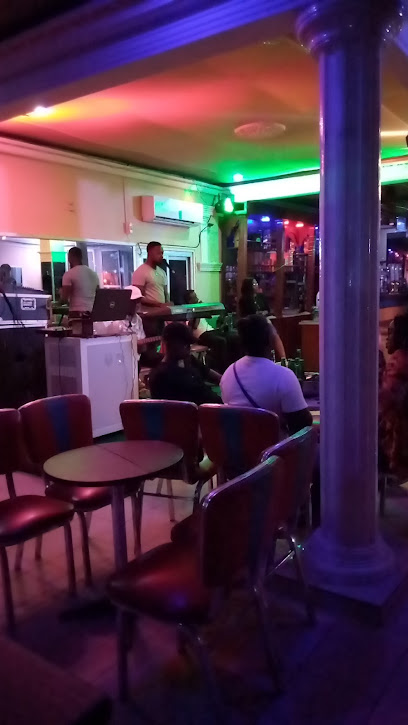
[P] PRIVE Lounge
Discover the vibrant nightlife at PRIVE Lounge in Limbe, Cameroon - a perfect blend of great drinks, music, and a lively ambiance.
![[P] PRIVE Lounge](https://evendo-location-media.s3.amazonaws.com/BarImages/28575fe1-efe4-4d48-b0a5-a0fc466a931e)
Bello Spot
Discover the vibrant atmosphere of Bello Spot in Limbe, where refreshing drinks and lively music create the perfect nightlife experience.

The Place
Discover the vibrant nightlife at The Place in Limbe, where local brews and lively ambiance create unforgettable moments.

Local Phrases about Limbe Beach
-
- HelloBuea
[bweh-ah] - GoodbyeKwa
[kwah] - YesEya
[eh-yah] - NoTey
[teh-y] - Please/You're welcomeKalo
[kah-loh] - Thank youMuna
[moo-nah] - Excuse me/SorryPardon
[par-dohn] - How are you?Deh yah?
[deh yah] - Fine. And you?Mbu. Na oh?
[mboo. nah oh] - Do you speak English?Na yi ngaleh England?
[nah yi ngah-leh eng-lahnd] - I don't understandAya yah eh
[ah-yah yah eh]
- HelloBuea
-
- I'd like to see the menu, pleaseA ngam menu, kalo
[ah ngahm meh-noo, kah-loh] - I don't eat meatA tek nyama
[ah teh-k nyah-mah] - Cheers!Mola!
[moh-lah] - I would like to pay, pleaseA ngam kweh, kalo
[ah ngahm kweh, kah-loh]
- I'd like to see the menu, pleaseA ngam menu, kalo
-
- Help!Sosor!
[soh-sohr] - Go away!Waka!
[wah-kah] - Call the Police!Na ngeh polis!
[nah n-geh poh-lees] - Call a doctor!Na ngeh dokita!
[nah n-geh doh-kee-tah] - I'm lostA yah apa
[ah yah ah-pah] - I'm illA yah mba
[ah yah mm-bah]
- Help!Sosor!
-
- I'd like to buy...A ngam...
[ah ngahm] - I'm just lookingA tinga
[ah ting-gah] - How much is it?Na ntang i?
[nah n-tahng ee] - That's too expensiveSi nde def
[see n-deh dehf] - Can you lower the price?Na ngeh kweh?
[nah n-geh kweh]
- I'd like to buy...A ngam...
-
- What time is it?Na ntang i?
[nah n-tahng ee] - It's one o'clockI ya yi
[ee yah yee] - Half past (10)Nyama yi
[nyah-mah yee] - MorningEmom
[eh-mohm] - AfternoonEfandeh
[eh-fahn-deh] - EveningElo
[eh-loh] - YesterdayA hia
[ah hee-ah] - TodayA i
[ah ee] - TomorrowA mu
[ah moo] - 1I
[ee] - 2Me
[meh] - 3Sa
[sah] - 4Si
[see] - 5Sa
[sah] - 6So
[soh] - 7Se
[seh] - 8Si
[see] - 9Si
[see] - 10Sa
[sah]
- What time is it?Na ntang i?
-
- Where's a/the...?Na way...
[nah way] - What's the address?Na ntang a...
[nah n-tahng ah] - Can you show me (on the map)?Na ngeh mu (ti map)?
[nah n-geh moo (tee map)] - When's the next (bus)?Na yah nze (basi)?
[nah yah n-zeh (bah-see)] - A ticket (to ....)A tikiti (to ....)
[ah tee-kee-tee (to)]
- Where's a/the...?Na way...
History of Limbe Beach
-
The area now known as Limbe was originally inhabited by the Isubu tribe, who were part of the coastal Bantu ethnic group. They engaged in fishing, trading, and agriculture long before European explorers arrived. The town was initially called 'Victoria' after the British explorer Alfred Saker founded it in 1858.
-
Under British colonial rule, Victoria rapidly developed into a significant seaport and commercial hub. The British built infrastructure, including roads, administrative buildings, and schools. The town's name was changed to Limbe in 1982 to honor the local tribe and to shed colonial associations.
-
In 1884, Cameroon became a German colony, and Victoria was an essential part of the German colonial administration. The Germans introduced new agricultural practices, including the cultivation of cash crops like cocoa and rubber, which significantly altered the local economy.
-
During World War I, British and French forces took control of German Cameroon. After the war, the League of Nations mandated the territory to the British and French. Limbe, under British mandate, continued to grow as a commercial center, especially with the rise of the petroleum industry.
-
Limbe has always been a cultural melting pot due to its strategic location along the coast. It has attracted a mix of ethnic groups, including the Isubu, Bakweri, and Duala people. The town is known for its cultural festivals, traditional music, and dances, which reflect its diverse heritage.
-
Established in 1892 by German horticulturists, the Limbe Botanical Garden is one of the oldest in Africa. It was initially intended to conduct agricultural research and introduce new crops. Today, it serves as both a research center and a tourist attraction, showcasing a variety of plant species native to Cameroon.
-
Cameroon gained independence from British and French colonial rule in 1960. Since then, Limbe has become a vital part of the nation's economy, particularly due to its oil refinery and port facilities. Despite modernization, Limbe has retained much of its historical charm and cultural significance.
-
Founded in 1993, the Limbe Wildlife Centre is dedicated to the conservation of Cameroon's endangered wildlife. The center works closely with local communities to promote conservation efforts and has become an important tourist attraction, educating visitors about the region's unique biodiversity.
Limbe Beach Essentials
-
Limbe Beach is located in the Southwest region of Cameroon. The nearest international airport is Douala International Airport, approximately 70 kilometers away. From Douala, you can take a taxi or hire a private car to Limbe, which typically takes around 1.5 to 2 hours by road. Alternatively, you can use a shared minibus (commonly known as 'clando'), which is a more affordable but less comfortable option.
-
Within Limbe, local taxis are the most common mode of transport and are relatively inexpensive. Motorbike taxis (known as 'bendskins') are also available but are generally less safe. For a more comfortable experience, you can rent a car through local rental services. Public transport such as minibuses connect Limbe to nearby towns and cities, but schedules can be irregular.
-
The official currency in Cameroon is the Central African CFA Franc (XAF). While credit cards are accepted in some hotels and larger establishments, it is advisable to carry cash, especially for transactions in smaller shops and markets. ATMs are available in Limbe, but it is wise to withdraw sufficient cash in Douala before traveling to Limbe.
-
Limbe is generally considered safe for tourists, but like any destination, it's important to take standard precautions. Avoid walking alone at night, particularly in less populated areas. Be cautious with your belongings in crowded places such as markets and beaches. Some areas, like parts of Down Beach and certain neighborhoods, have higher crime rates targeting tourists, so it is best to stay vigilant and avoid these areas after dark.
-
In case of emergency, dial 113 for police assistance and 119 for medical emergencies. Limbe Regional Hospital is the main medical facility in the area. It is advisable to have travel insurance that covers medical emergencies. For minor health issues, there are several pharmacies in town where you can purchase over-the-counter medications.
-
Fashion: Do dress modestly; avoid wearing revealing clothing, especially when visiting local communities. Religion: Do respect religious traditions; remove shoes when entering mosques and dress conservatively. Public Transport: Do be polite and respectful; greeting the driver and passengers is customary. Don't eat or drink on public transport. Greetings: Do greet people with a handshake or a friendly nod. Eating & Drinking: Do try local dishes like grilled fish and plantain. Don't refuse food or drink offered by locals, as it is considered impolite.
-
To experience Limbe Beach like a local, visit the Limbe Botanical Garden and the Limbe Wildlife Centre. Both offer insights into the local flora and fauna. Engage with locals at Down Beach where you can enjoy fresh seafood and learn about the local fishing culture. Don't miss visiting nearby attractions like Mount Cameroon and the historic town of Buea.
Trending Landmarks in Limbe Beach
-
Boucareau
-
Big Bite
-
Limbe Wildlife Centre
-
ALCEF PARK
-
Mile 4 (Wututu Park)
-
Limbe Botanic Garden
-
The Golden Jubilee Monument
-
The Beach House, Botaland
-
Gilgal Tower
-
Black and White Limbe
-
Dada Modern Estates Guest House Ngeme Limbe
-
Apple Night Club
-
Coastal Beach Hotel
-
Karata Junction
-
Beyond Barbers The Beauty Spa
Nearby Cities to Limbe Beach
-
Things To Do in Buea
-
Things To Do in Tiko
-
Things To Do in Malabo
-
Things To Do in Douala
-
Things To Do in Luba
-
Things To Do in Edea
-
Things To Do in Nkongsamba
-
Things To Do in Kribi
-
Things To Do in Calabar
-
Things To Do in Uyo
-
Things To Do in Dschang
-
Things To Do in Mamfe
-
Things To Do in Bafoussam
-
Things To Do in Mbouda
-
Things To Do in Bafia









